 Weird Stuff
Weird Stuff  Weird Stuff
Weird Stuff  Movies and TV
Movies and TV 10 Weird Ways That TV Shows Were Censored
 Our World
Our World 10 Places with Geological Features That Shouldn’t Exist
 Crime
Crime 10 Dark Details of the “Bodies in the Barrels” Murders
 Animals
Animals The Animal Kingdom’s 10 Greatest Dance Moves
 Movies and TV
Movies and TV 10 Box Office Bombs That We Should Have Predicted in 2025
 History
History 10 Extreme Laws That Tried to Engineer Society
 History
History 10 “Modern” Problems with Surprising Historical Analogs
 Health
Health 10 Everyday Activities That Secretly Alter Consciousness
 History
History Top 10 Historical Disasters Caused by Someone Calling in Sick
 Weird Stuff
Weird Stuff 10 Wacky Conspiracy Theories You Will Need to Sit Down For
 Movies and TV
Movies and TV 10 Weird Ways That TV Shows Were Censored
 Our World
Our World 10 Places with Geological Features That Shouldn’t Exist
Who's Behind Listverse?

Jamie Frater
Head Editor
Jamie founded Listverse due to an insatiable desire to share fascinating, obscure, and bizarre facts. He has been a guest speaker on numerous national radio and television stations and is a five time published author.
More About Us Crime
Crime 10 Dark Details of the “Bodies in the Barrels” Murders
 Animals
Animals The Animal Kingdom’s 10 Greatest Dance Moves
 Movies and TV
Movies and TV 10 Box Office Bombs That We Should Have Predicted in 2025
 History
History 10 Extreme Laws That Tried to Engineer Society
 History
History 10 “Modern” Problems with Surprising Historical Analogs
 Health
Health 10 Everyday Activities That Secretly Alter Consciousness
 History
History Top 10 Historical Disasters Caused by Someone Calling in Sick
10 Examples Of Businesses Owning Entire Governments
In today’s society, it often seems as if you cannot turn on the news without hearing about the ways in which big businesses use their deep corporate pockets and political might to influence politicians and elections. While their presence has become more prevalent, especially in the US as a result of Supreme Court decisions such as Citizens United (which affirmed that money is considered speech and that companies and individuals are constitutionally free to spend as much money/speech as they want to), it is also worth remembering that at the end of the day, voters are the ones who control the ballot boxes and are the ones with the final say.
However, in some countries throughout history, companies were the ones who were fully in charge. These outfits don’t just influence elections and politicians; they actively ran the countries as parts of their business empires. The following list contains ten examples of these corporatocracies.
10 The British East India Company
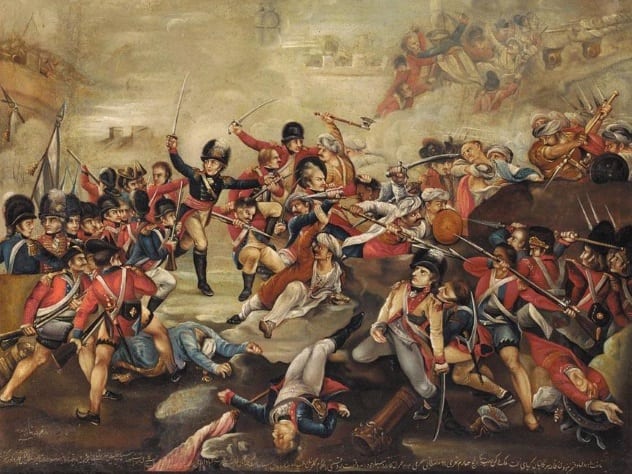
Originally chartered in the early 1600s as the “Governor and Company of Merchants of London trading into the East Indies,” the British East India Company (BEIC) was a joint-stock company, a forerunner to the modern-day corporation. Wealthy aristocrats and traders invested in the company, pooling resources into the business and receiving a share. They received a royal charter from the British Crown for an exclusive monopoly for trade with India.
Initially, the company only focused on trade, but as the Mughal Empire declined, the BEIC seized territory, first claiming Bengal and then using its private armies to acquire more land. As more territory was acquired, the company started to take on administrative duties, including taxation, education, post offices, telegraphs, railways, and judicial functions.
All the while, the British government had little control; instead, while the territory of India was nominally under British authority, the country was really under the control of the Board of Directors, which was responsible to its shareholders. Only after failing to turn a profit after numerous years and allegations of corruption in the civil service did the British transfer governance to Parliament, finally directly assimilating it into the empire in 1858.[1]
9 Hudson’s Bay Company
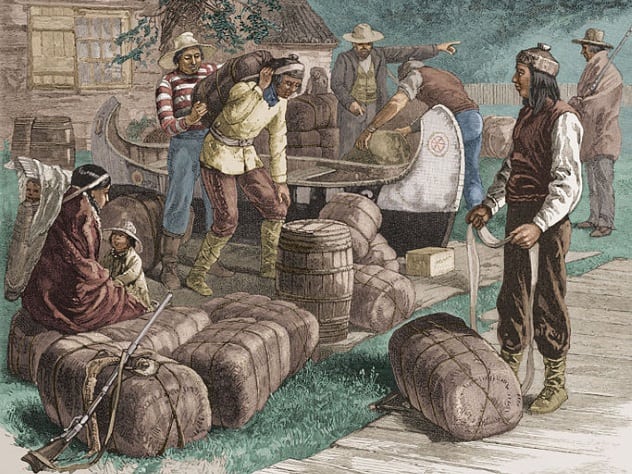
You may have shopped at Hudson’s Bay Company (HBC) if you live in Canada, the United States, or Europe, with their numerous brands such as Hudson’s Bay, Lord and Taylor, Saks Fifth Avenue, or Home Outfitters, but did you know that at one time, the company was a fur-trading business which functioned as the de facto government in parts of North America?
The HBC was founded by royal charter as “The Governor and Company of Adventurers of England trading into Hudson’s Bay” in 1670 in London. It is the oldest incorporated joint-stock merchandising company in the English-speaking world, and at one point, it controlled 15 percent of North American acreage. It had an exclusive right to trade in all areas with rivers flowing into the Hudson Bay, and as a part of its trade, it undertook governmental functions.[2]
The HBC divided its region into trading departments, which were further subdivided into districts. The council passed regulations governing local trade and made sure to take care of settlers and undertake the logistical requirements of the districts. As the colony grew, the company eventually relinquished its colonial responsibilities but expanded into retail.
8 Banana Republics

It seems strange that the sweet, innocent banana would be responsible for so much of the political turmoil that occurred in Latin America in the 20th century. Nevertheless, the banana industry is responsible for the rise and fall of brutal regimes, solely for the purpose of extracting as much economic profit as possible from the US appetite for bananas.
Companies such as the United Fruit Company (now known as Chiquita) would install puppet rulers throughout Latin American countries, paying them for their support, and would build vital infrastructure such as railroads in exchange for land. Complaints were met with threats to leave the country, bribes, or even revolutions or invasions! The companies held all the strings to power and were able to bribe or order officials to either ignore worker complaints or send the army in against strikes. They even used US resources, for example, by convincing the CIA that a Guatemalan leader was communist, deposing him, and installing a leader more favorable to their interests.[3]
7 City Of London
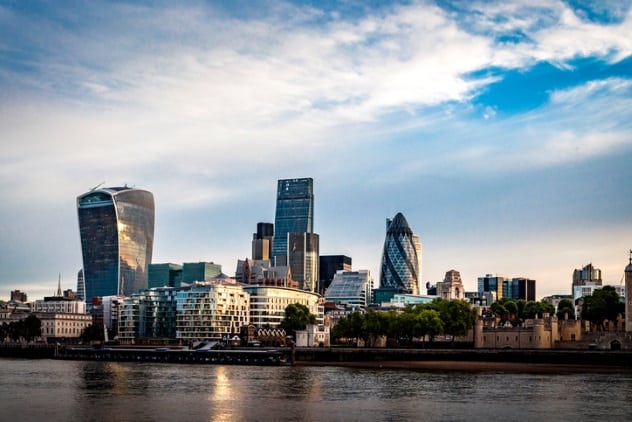
While many people have heard of London, what they might not know is that there are two distinct Londons within the UK: the modern-day Metropolitan London, with the mayor of London, and a small enclave within called the City of London, with the completely separate lord mayor of London. Confusing? Yep, and wait until you get to the electoral system.
Originally, the City of London was founded as a Roman settlement in the first century AD, but as the population increased, the city expanded far beyond its borders. As a result, there are two distinctive Londons, with the City being the original one and retaining its ancient rights. This includes an electoral system which we would consider odd in the democratic world.
In the City of London, both residents and businesses have a vote when it comes to choosing city councilors.[4] While each resident has only one vote, businesses are allocated votes based on the number of employees that they have. This unique arrangement means that the business vote exceeds the number of voters in the City. In 2009, the business vote was around 24,000, while the resident vote was only around 9,000. The process is controversial; some say that the number of people who commute into the area (450,000) means that they should have a say in governmental affairs, while others see it as unfair to those who actively live there.
6 Myanmar
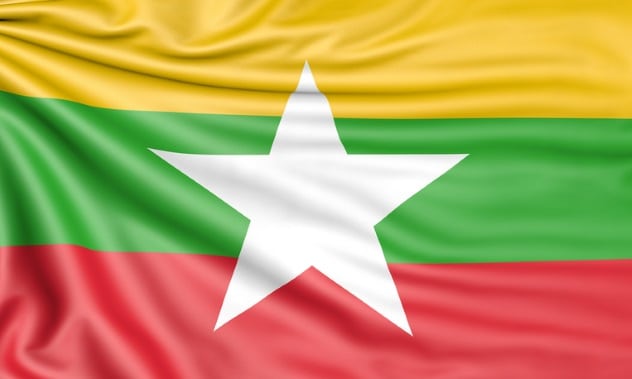
While not as blatant a corporatocracy as the other examples on this list, Myanmar has a unique power structure which enables the military to exercise vast amounts of control over the civilian government. This has led to the military being a state-within-a-state, and as a result, the military has used this autonomy to expand its growth into industry, using its political and financial powers to make investments and protect them from civilian interference.
Although the military junta was officially dissolved in 2011, it still maintains vast control over government, including a quarter of all parliamentary seats, the ability to appoint cabinet heads for defense and homeland security without the president’s permission, and a majority on the National Defence and Security Council, which is the most powerful authority in the state.
As a result of this power, the army doesn’t operate in a way considered “normal” in other countries; it owns companies such as the Myanmar Economic Corporation and Myanmar Economic Holdings Limited, both of which are used to enrich current and former military members. It owns ventures in fields such as cigarettes, petroleum imports, ports, and telecommunications. Additionally, foreign companies wanting to do business in Myanmar usually partner with the military industries. In this way, the military has morphed from being a defense force into an industry designed to enrich the shareholders (members of the army), with the political clout to enforce this vast empire without fear.[5]
5 Dutch East India Company
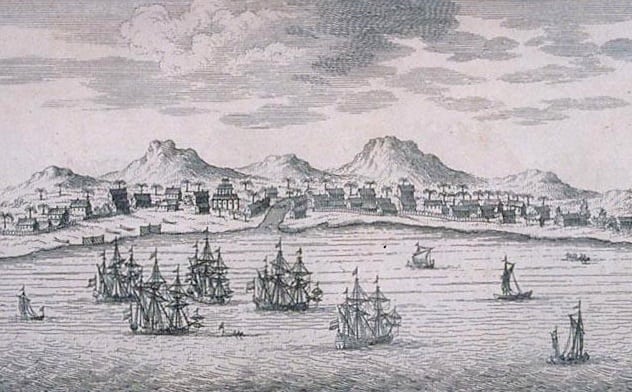
The Dutch East India Company, better known by its initials “VOC,” became the first company to be listed on a stock exchange, as well as the first major multinational corporation. It also was unique in the fact that its shareholders were only liable for the amount they had invested in the business, making it an early example of a limited liability company.
While initially being established as a consolidation of several rival trading companies, with a 21-year monopoly on the spice trade, the VOC quickly grew into a country in its own right. It flexed its statesmanlike powers in 1619, when it leveled the Indonesian city of Jayakarta, rebuilt it as Batavia, and began using it as a central base for its operations. It quickly expanded throughout the region and took on quasi-governmental powers, including waging war, imprisoning people, creating its own currency, and negotiating treaties within the region. The company was responsible only to its board of directors and shareholders. Its assets were finally dissolved and taken over by the Dutch government in 1799.[6]
4 Congo Free State
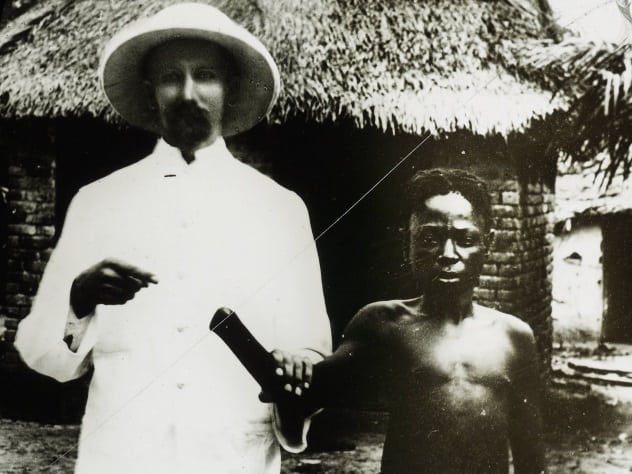
The Congo Free State was established during the Scramble for Africa as a personal domain of King Leopold II of Belgium. During the Berlin Conference, Leopold was able to convince the other European states that he would undertake humanitarian and philanthropic work in the region.
As a result, Leopold was able to lay claim to most of the Congo Basin, and he controlled the region via an organization called the International Association of the Congo. Although he was the king of Belgium, the region operated entirely separately from the country; instead, it was held as a personal fief/corporate entity under his name.
Leopold extracted ivory, minerals, and rubber to sell on the world market and committed horrible atrocities against the locals in order to gain these resources. Although the ostensible purpose was to “better” the native population, Leopold and the Association were actually operating a business under the guise of sovereignty in order to exercise autonomous control without interference from other state or governmental actors. It was only after these atrocities were reported that the Belgian state annexed the colony in 1908.[7]
3 Walt Disney World
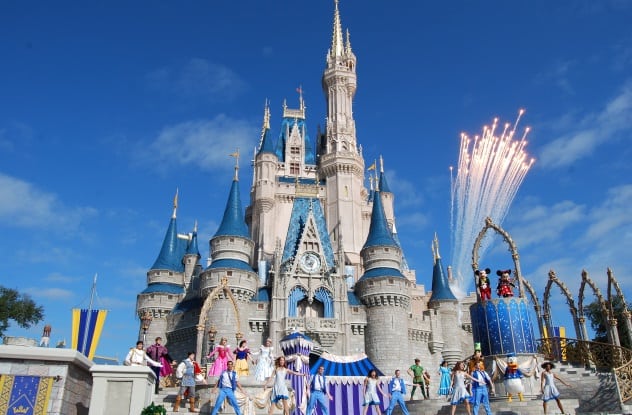
When one goes to Walt Disney World, one feels as if they have entered a new whole new country. Each area of the park is carefully designed and fabricated to make customers feel as if they are living in a real-life Disney experience. Every part of the park is carefully organized, and no space seems untouched by the developers. Everything must look perfect and in its proper place. Everything must be controlled; hence, if Disney wants to control every aspect of its park, does it not seem believable that they would control the levers of government, too?
That’s precisely what Disney does. While most tourists may not realize it, the area is within the Reedy Creek Improvement District, which has almost total autonomy within its borders. Disney is responsible for all aspects of governance within the district, such as drainage, utilities, roads, fire protection, medical services, building codes, and land use regulation. This came as a result of Walt Disney’s petitioning to the legislature of Florida for an independent district to create his Experimental Prototype Community of Tomorrow (EPCOT), with full authority to govern its internal affairs.[8] While his plans for a futuristic community never came to be, the area received almost complete autonomy and is governed by senior executives in the Walt Disney Company, who own five-acre plots of land in order to elect themselves to the Board of Supervisors.
2 Saudi Arabia
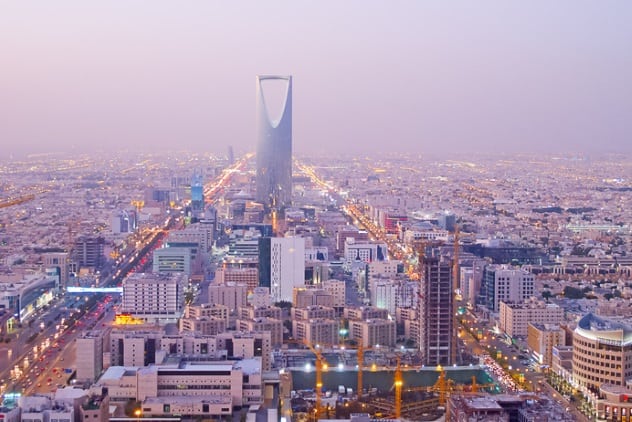
Saudi Arabia is one of the few remaining absolute monarchies in the world and has been ruled by the House of Saud from its original founding in 1932 by King Abd-al-Aziz. As an absolute monarchy, the king combines the legislative, executive, and judicial functions by promulgating decrees, appointing all executive branch positions from defense to economy, deciding on punishments for crimes, and appointing the judiciary.
What makes the state a modern-day corporatocracy is its dependence on its oil industry. It sits on more than 25 percent of the world’s known oil reserves, and its national oil company, Saudi Aramco, is completely owned by the government.[9] Because the country is the personal property of the ruling Saud family and because oil plays such a dominant role in Saudi Arabia’s existence, this means that the oil revenues go toward directly financing the ruling family, making it a modern-day corporatocracy.
1 Texas
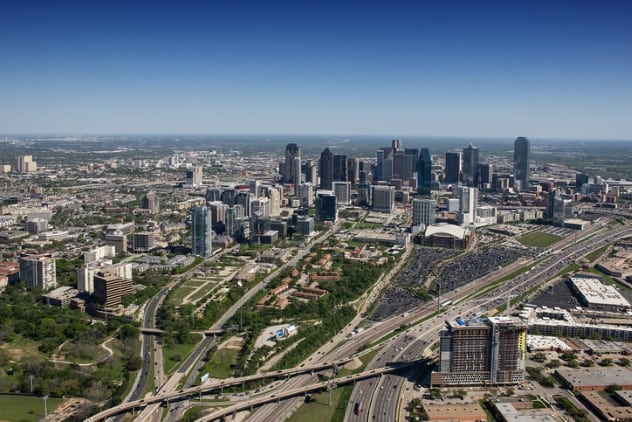
The Lone Star State is known for its conservative ideals, big business friendliness, cowboy persona, and its frequent claim that “everything is bigger in Texas.” Unlike other entries on this list, Texas does not have corporations exercising formal control over the levers of state government, but I’m willing to argue that the informal powers that companies wield make cause for concern.
Texas is known as having a small, weak government system, where the governor is weaker than the lieutenant governor according to folklore. Additionally, most of the executive branch positions are elected by voters, diffusing further the power of the governor. Also, the governor has no authority to fire individuals from boards and commissions, and often, the people appointed are those with ties to industry.
The power of companies in Texas is so great, in fact, that they even have influence over the positions which are elected. The Texas Railroad Commission, for example, has no role in regulating railroads within Texas; instead, it regulates the oil and gas industries. But the industries were able to convince legislators not to the change the name.[10] Keeping the name hides the real purpose behind the commission, which allows the industries to influence voters and nominate members favorable to their interests.
Eamon is a freshman at Brown University who is interested in politics, economics, and history.
Read more about the shadier side of business on Top 10 Evil Businessmen and Top 10 Unethical Business Actions.








